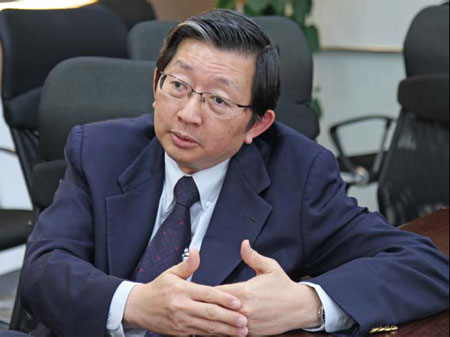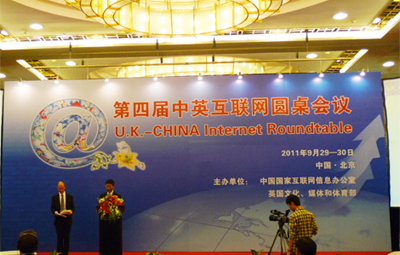'Build it and they will come'
Updated: 2011-10-07 10:07
By Alexis Hooi (China Daily)
|
|||||||||
|
|
Talent attraction high on Guangzhou Knowledge City's agenda
Attracting talent remains a top priority for one of Guangdong's latest major developments as the province gears up to face a changing economy.
"Our strategy is to create an environment that is economically vibrant - an exciting place for them to live, stay and work - and have access to funds, to attract talent from overseas including returning Chinese," says Tay Hun Kiat, chief executive officer of Guangzhou Knowledge City, one of the southern province's newest urban and industrial development projects.
The Guangzhou project is located on a 123-sq-km site, about 35 km away from the center of Guangdong's provincial capital, and will be driven by the private sector with support from the Chinese and Singapore authorities. Its master developer is a joint venture company, the Sino-Singapore Guangzhou Knowledge City Investment and Development Co Ltd, with a registered capital of 4 billion yuan ($625 million, 464 million euros). Knowledge City Pte Ltd, under the Temasek Holdings-owned SingBridge International Singapore Pte Ltd, and the Guangzhou Knowledge City Investment and Development Co Ltd, under the Guangzhou Development District, hold equal stakes of 50 percent each in the project.
The project is being positioned as "a model and catalyst for the economic upgrading and environmental enhancement" of Guangdong. Pillar industries identified include IT convergence, biotechnology and pharmaceuticals, energy and environmental technology, and education and training sectors.
The city's total population is expected to hit 540,000 under a 20-year plan, with half of the residents employed within the city. Its GDP is targeted to be greater than or equal to 100 billion yuan by the year 2020 and real income per capita of 150,000 yuan a year by that time.
In line with its vision to provide an attractive living environment, half of the site will be kept as "green space". The "smart" city will also have futuristic monitoring and management systems for infrastructure like transport networks and utilities, including wireless technologies and pneumatic waste disposal facilities.
"You will find that Guangzhou is an interesting city where more than 40 percent of its workforce comes from outside Guangdong province. Why? Because of the vibrant economy that attracts them here. We hope this will continue with the concentration of the higher value-added economy here," Tay says.
He admits that there are many other similar development projects in the country that are aiming to attract talent, but he says his project is betting on a winning formula.
"Yes, there is a limited talent pool globally. But there is no one city in China that can attract all. Talent may be attracted for a few reasons: It could be employment opportunities and growth potential for individuals. That's why we think that business environment and good infrastructure for business to thrive is very important," he says.
The Guangzhou project is the latest large-scale collaboration between Singapore and China. The Suzhou Industrial Park in Jiangsu province and Tianjin Eco-city were previously developed on a government-to-government level between the two countries. The latest project will be "a progression" from the previous two and benefit from the experience of developing them, Tay says.
His team will also try to plug the shortage of top universities in Guangdong - which many analysts have said is a major disadvantage in attracting talent - by building up networks and exchanges with renowned educational institutions in the region and beyond to attract R&D and teaching faculty.
"It will take some time. If you build a new university, if you attract a new university, it will take maybe 10 years more to groom the next level and next generation of talent. We are also looking at universities and educational institutions in Singapore and the US to train people in innovation and entrepreneurship," he says.
"Knowledge comes from talent and we are prepared to put in as much as it is commercially practical to do so If you don't have an industrial base and you want to jump to the next level, high-value-added, modern services, knowledge-based economy, it is very tough," Tay says.
"But this is the best opportunity. They (Guangdong) have already succeeded in the past 30 years in economic transformation. The people here want to try, the government is supporting and we are sharing experience. It is now up to us to make it work."











